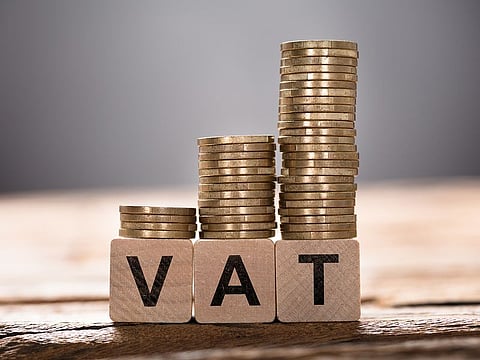UAE VAT: What is the tax obligation for overseas service providers?
Often, overseas based service providers are selective in charging VAT

I often come across invoices issued by Overseas Service Providers (OSPs) such as software companies, media streaming and social media platforms. Many such service providers – though incorporated outside UAE - are duly registered under UAE VAT as ‘non-resident suppliers’.
Despite being VAT registered, the OSPs are charging VAT only on selective supplies. For B2B supplies - where a tax registration number (TRN) is provided by a service recipient – the OSPs often do not charge VAT. Such a tax position could trigger potential VAT arrears and administrative penalties.
Is a VAT-registered supplier solely responsible to pay VAT?
The VAT Decree Law is fairly clear that VAT is imposed on every taxable supply made by a taxable person. VAT so imposed is the responsibility of the VAT-registered supplier, i.e., the person who makes such taxable supplies.
The OSPs segregate their supplies into B2B supplies (to VAT-registered recipients) and B2C supplies (to non VAT-registered recipients) to determine their VAT registration obligation. But once registered for VAT, the OSPs should not continue such segregation and charge VAT selectively on B2C supplies only.
The VAT laws do not contain any option to determine the tax liability based on the recipient’s VAT registration status. The OSPs - once registered under the UAE VAT - should be responsible for VAT on ‘every’ supply made by them in the UAE.
Does the reverse charge mechanism (RCM) protect such overseas suppliers?
The OSPs often assume that the reverse charge mechanism (RCM) applicable on the VAT-registered recipients eliminate the requirement to charge VAT on B2B supplies. Such assumption is however misplaced.
The FTA’s guidance clarifies that RCM is a simplification measure to avoid the need for non-resident suppliers to register for VAT. The simplification measure of RCM does not seem to permit B2B/B2C segregation to selectively charge VAT by registered OSPs.
An important condition for RCM to apply is that VAT be not charged by the OSPs. VAT not being charged is a 'condition' to establish the RCM applicability, and not the other way around. The OSPs do not get a 'right' under the VAT laws to selectively decide not to charge VAT on B2B supplies.
If the OSPs are already VAT-registered, the RCM would not be applicable as the obligation to charge VAT should automatically trigger for ‘every’ supply by the OSPs. Only if the OSPs are not registered - and resultantly cannot charge VAT on its supplies – RCM would be applicable by deeming the service recipient as the supplier to themselves.
Is tax compliance by overseas suppliers adequate?
The tax compliances by some OSPs also appears to be inadequate. An individual could potentially circumvent VAT charge by providing a tax registration number (TRN) of any company in its user profile. The tax position of not charging VAT on B2B supplies could cause tax revenue loss.
It will also be administratively easier for the Federal Tax Authority (FTA) to audit a limited number of registered OSPs to ensure that VAT is charged on ‘every’ supply. FTA would also be relieved from a time-consuming review the OSPs’ customer database to identify the incorrect TRNs provided by recipients to identify VAT leakages. The requirement to charge VAT on ‘every’ supply by OSPs would also highlight the need to issue ‘tax invoices’ for all past and future supplies.
Overseas service providers such as software companies, media streaming and social media platforms should examine the tax risks at the earliest and identify the financial exposure to their profit margins.
Sign up for the Daily Briefing
Get the latest news and updates straight to your inbox


